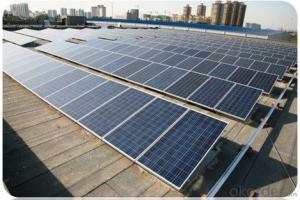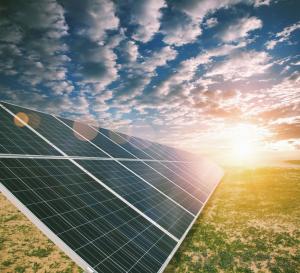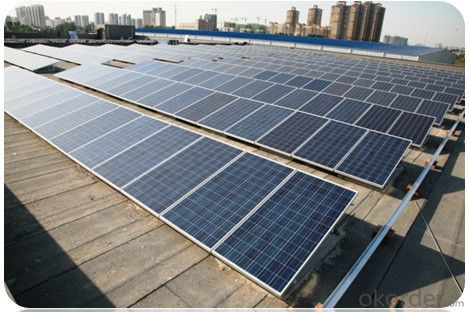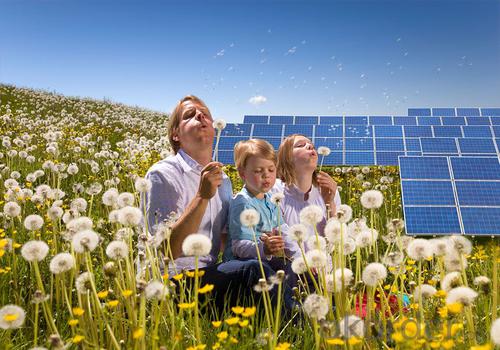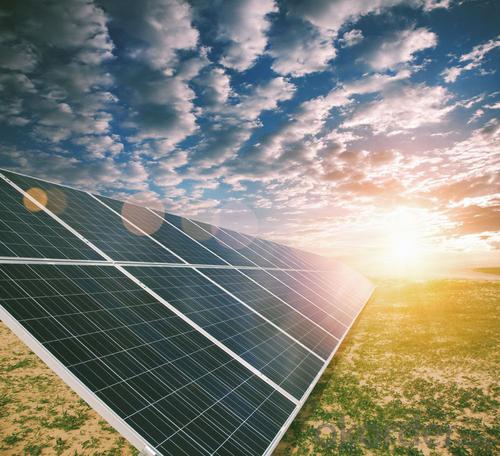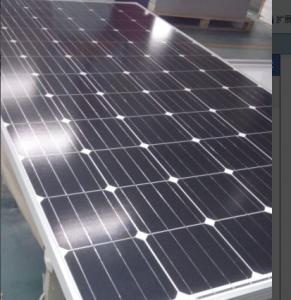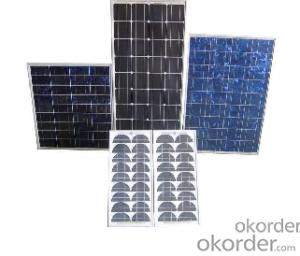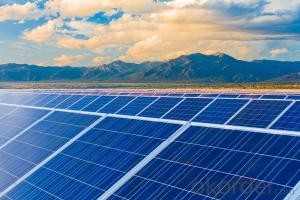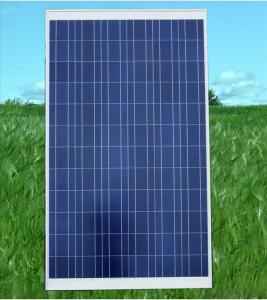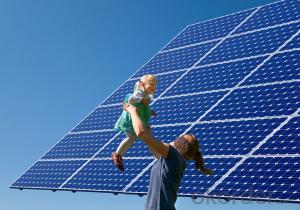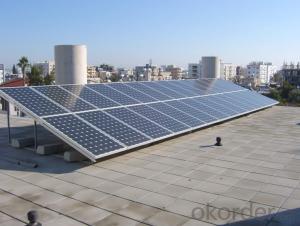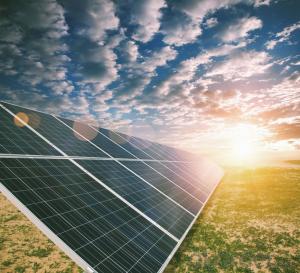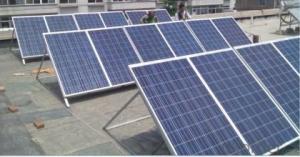260w Polycrystalline Silicon Solar Panels Solar Panels Quote
- Loading Port:
- Guangzhou
- Payment Terms:
- TT OR LC
- Min Order Qty:
- 200000 watt
- Supply Capability:
- 20000000 watt/month
OKorder Service Pledge
OKorder Financial Service
You Might Also Like
About us
We are a high-tech group wich specializes in solar products design,research, manufacture, sales,solar projects design and installation.
Our national sales service covers seven parts, including northeast, north, east, middle, south, northwest and southwest, international sales covers five continents and over forty countries, including Germany, Italy, Spain, France, America and Brazil etc.
Our present annual capacity is 6 million for wafer, 60MWp for solar cells,200MWp for solar modules and one hundred thousand for solar applications. It is expected that the annual capacity of 2012 will be up to 30 million for wafer, 300MWp for solar cells, 1000MW for solar modules and 2 million for solar applications.
INTRODUCTION
This installation Manual contains essential information for the electrical and mechanical installation that your must know before installing CUSTOMER PV modules. This also contains safety information you need to be familiar with .All the information described in this manual are the intellectual property of CNBM and based on the technologies and experiences that have been acquired and accumulated in the long history of CUSTOMER. This document does not constitute a warranty, expressed or implied.
CUSTOMER does not assume responsibility and expressly disclaims liability for loss, damage, or expense arising out of in anyway connected with installation, operation, use or maintenance of the PV modules. No responsibility is assumed by CUSTOMER for any infringement of patents or other rights of third parties that may result from use of PV module.
CUSTOMER reserves the right to make changes to the product, specifications or installation manual without prior notice.
GENERAL INFORMATION
The installation of PV modules requires a great degree of skill and should only be performed by a qualified licensed professional, including licensed contractors and licensed electricians. Please be aware that there is a serious risk of various types of injury occurring during the installation including the risk of electric shock. All CUSTOMER modules are equipped with a permanently attached junction terminal box that will accept variety of wiring applications or with a special cable assembly for ease of installation, and they do not require assembly.
COMPONENTS
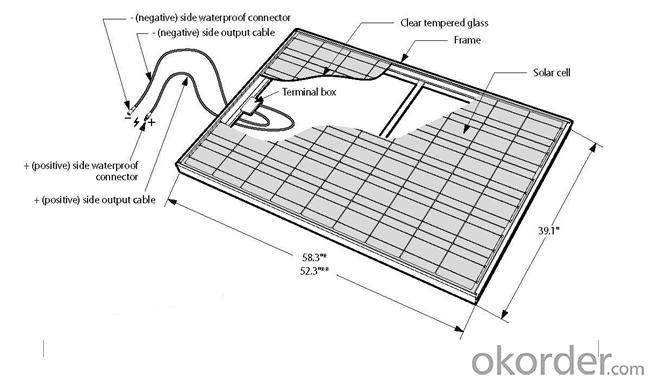
Data sheet
Maximum power | 260W |
Cell type(mm) | Polycrystalline solar cell 156*156 |
Number of cell(pcs) | 60(6*10) |
Manufacture site | China |
Open-circuit voltage(voc) | 37.6V |
Maximum power voltage(vmp) | 30.5V |
Short-circuit current(isc) | 8.95A |
Optimum operating current(imp) | 8.53A |
Power tolerance | 0~+5W |
Module efficiency | 16% |
Dimensions(mm) | 1640*992*40 |
Weight | 19 kg |
Backsheet | Silver |
Frame Colar | White |
Frame | Anodized Aluminum Alloy |
- Q: Can solar panels be used to power air conditioning or heating systems?
- Yes, solar panels can be used to power air conditioning and heating systems. Solar panels convert sunlight into electricity, which can be used to power various appliances and systems in a building, including air conditioning and heating units. This is achieved by connecting the solar panels to an inverter, which then converts the generated DC electricity into AC electricity that can be used to run these systems. By utilizing solar power, it is possible to reduce reliance on traditional energy sources and reduce carbon emissions associated with air conditioning and heating.
- Q: Photo-Voltaic solar panels are very expensive. Most of a home's energy needs are for heating water, heating and air-conditioning. All of these can be met with thermal solar collectors which are much less expensive. The thermal solar panels would heat water stored in a hot water tank which then can be used as hot water, to heat the home, or as the heat source to a Lithium Bromide Absorption chiller to air-condition a home. With the base line needs met without expensive panels and without inefficient energy conversions, only a small Photo-Voltaic array would be needed for the remaining power needs and since those needs are variable, there would still be power to sell to the grid.
- you completely nailed it!! speaking about large buildings, it would benefit one to do a little more research. my company just installed a 640 collecter system on a million sq foot building. it consists of a absorption chiller (which uses no coolant, just water a silica gel beds, runs of the power of its controller, thats it) 27,000 gallon tank. chiller feeds 2 rotation units and 2 large office spaces for heat and cool. payback expected at less than 5 years. we will expand this system another 200 collectors. residential installs, if tax credits used, achieve 5-7 year payback pending domestic hot water only or dhw and space heating. thermal collectors actually produce more energy than pv panels do, therefore more bang for your buck, also as i hope you all know, pv has around 25% eff, thermal has 95%. also to say the tech part is gone, we use flowmeters that calculate carbon offsets, energy saved, money saved etc...all located in a wireless monitor for the consumer to enjoy.
- Q: Do solar panels require direct sunlight to work?
- No, solar panels do not require direct sunlight to work. They can still generate electricity from indirect sunlight or even on cloudy days.
- Q: Hi. I hate the energy company. I hate my carbon footprint. I will likely move to a piece of property and put a decent-sized mobile home on it. I want solar panels so I can get my own power. I live in the state of Wisconsin. How much would this approximately cost? Would I need certain permits? How many panels can be used? Thanks for helping!
- I okorder Hope this helps.
- Q: Dont/Cant work alone?when you buya asolar panel you mUST GET bATTERIES, voltage regulators and many else stuff?cant they just work directly? or can i use normal batteres like Car batteries?The one who Really knows 0 pts. thanks
- You do not need batteries unless you want power at night, you don't need a regulator unless you'll be using your panels to power anything other then what the voltage of the panels is (ie 2v panel = 2v llight bulb) 3.You can use them directly or you can use car batteries (though deep cycle batteries are better).
- Q: i have a 50 watt 2 Volt solar panel..Will it can switch on directly a car head light on a sunny day??? How much head lights it can support on a bright sunny day??? if its cloudy then can it run a single Head light???? i have no batteries just want to connect a car Head light directly to solar panel.
- Indestructible okorder /
- Q: Are solar panels fire hazards?
- Solar panels are generally not considered fire hazards. While there have been some isolated incidents of fires related to solar panels, they are extremely rare and typically caused by faulty installations, damaged equipment, or external factors. When installed properly and maintained regularly, solar panels pose no significant fire risk.
- Q: How can I calculate the amount of watts needed for a solar panel to power a water and air pump in gal/hr and a 600 watt LED light?
- With you up to solar panel, then things go downhill. Your Water pump will be rated at gal/hr but how about the air pump? 600watt LED? What you need to know in order to select your solar panel is how much current you will be draining. You can work this out if you know how much power and how long they need to run. Please, a bit more information (that is relevant!).
- Q: Can solar panels work at night?
- No, solar panels cannot generate electricity at night as they rely on sunlight to produce power.
- Q: I purchased some small 3.6 v 70mA solar panels online. I have no experience with solar panels. I am confident of the layout of the parallel circuit I want to create, however I don't know how to properly connect the tabs that come from the sides of the panels. Any help on connecting them?
- If okorder
Send your message to us
260w Polycrystalline Silicon Solar Panels Solar Panels Quote
- Loading Port:
- Guangzhou
- Payment Terms:
- TT OR LC
- Min Order Qty:
- 200000 watt
- Supply Capability:
- 20000000 watt/month
OKorder Service Pledge
OKorder Financial Service
Similar products
Hot products
Hot Searches
